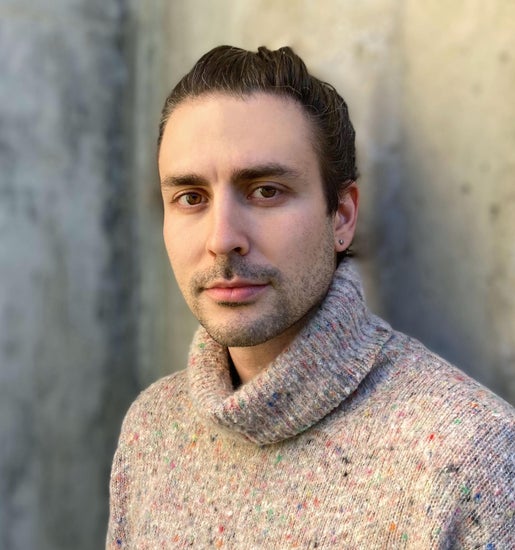2022-23 Linda Hall Library Fellows
From Music to Modern Neuroscience: An Alternative History of the Modern Sciences of The Brain
Edward Halley Barnet is a historian of science who specializes in the relationship between music and science, as well as the early modern origins of neuroscience. His book project, From Music to Modern Neuroscience, tells a new musical history of the medical sciences of the body, showing in particular how music and musical instruments shaped the emerging sciences of the nerves and the brain. Rooted in historical methodologies, Barnet's work also draws upon many other disciplines within the humanities, including music, literary theory, and philosophy. Before coming to the Linda Hall Library, he taught courses in music and the history of science at Hamilton College and earned his PhD at Stanford University. He is an avid cyclist and cook, enjoys playing jazz guitar, and is a proud father.
As a fellow, Barnet will use the collections at Linda Hall Library and Clendening Library to investigate the connections between a) the wave theory of light and electromagnetism, and the romantic conception of neural and vital energy that all emerged in the late eighteenth and early nineteenth centuries; and b) seventeenth and eighteenth-century research on music and sound.
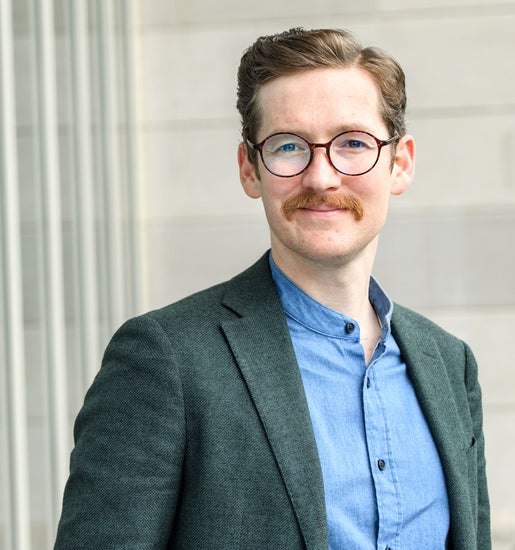
Making the Invisible Visible: The Magnesium Oxide Method in Paleontological Photography
David Ceccarelli earned his PhD in Historical, Social, and Philosophical Sciences at the University of Rome "Tor Vergata." He taught History of Science at the University of Rome "Tor Vergata" and the University of Florence. His research interests focus on the history and historiography of evolutionary biology, the history of evolutionary social theories, and the visual history of paleontology.
At the Linda Hall Library, Ceccarelli will investigate the method of fossil photography introduced by the naturalized American physicist and paleontologist, Franco Rasetti (1901-2001), which consisted of the application of magnesium oxide on microfossils to bring out phenotypic features useful for taxonomic determination. Drawing on the collections stored at the Linda Hall Library, Ceccarelli will examine how the technique gained considerable success between the 1940s and the 1980s, weighing its actual impact on twentieth-century invertebrate paleontology. Additionally, he will use this case study to show that, although paleontologists saw photography as a tool for overcoming the interpretative element of drawing, they could not but emphasize some visual features for epistemological purposes.
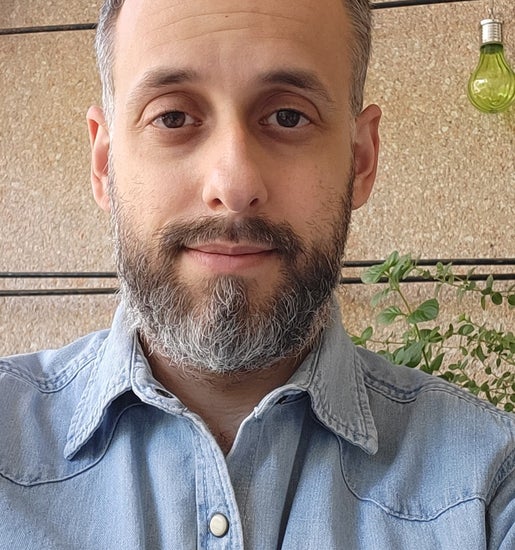
Weathering Colonial Calcutta, 1800-1945
Animesh Chatterjee is a postdoctoral research fellow in the European Research Council project "A Global History of Technology, 1850-2000" at Technische Universität Darmstadt. His research interests include the cultural history of electricity in colonial Calcutta, focusing on the ways in which quotidian aspects of political and cultural expression, class and social identities, public and domestic spheres, and material and commodity cultures were mapped onto multiple meanings, interpretations, and everyday experiences of electric supply and technologies. His book, The Social Life of Electricity in Colonial Calcutta, 1875-1945 (under contract with Routledge), looks at the myriad ways in which different social groups and individuals in late-nineteenth and early twentieth century Calcutta understood, experienced, discussed, represented, used, and in some cases, misused electric supply and technologies.
At the Linda Hall Library, Dr. Chatterjee will begin research for his second book project, Weathering Colonial Calcutta, which will present an urban, material, and cultural history of colonial Calcutta as a story of changing ideas about, and everyday experiences of the weather. The project aims to reframe the history of colonial Calcutta by examining the place of the weather, seasons, and climate in cultural and political expressions, public and domestic spaces, and material culture. It takes two distinct yet interrelated approaches to writing a history of the social construction of "weather" – one using "weather" as a noun, and the other as a transitive verb.
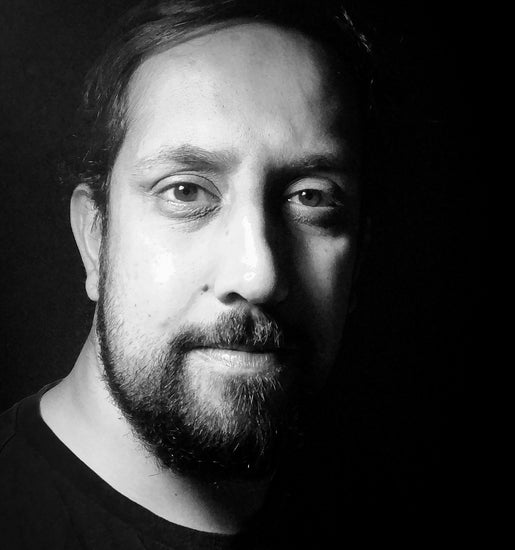
Nicole Cote is a doctoral candidate at The Graduate Center of The City University of New York (CUNY), who works at the intersection of environmental and digital media, STS, disaster studies, and public knowledge. She holds an MS from the Tandon School of Engineering at New York University (NYU) and an MScR from the School of Literatures, Languages, and Cultures of the University of Edinburgh.
At the Linda Hall Library, Cote will be examining the Library's extensive resources on fire, natural disasters, and emergency preparedness, as well as their collection of historical emergency management communication guidelines. Material from the Library will inform her research by offering insight into how forms of emergency communication and fire-related knowledge have been shaped for the public, and how information infrastructures have enabled particular public understandings of wildfires. The Library's materials also offer imperative perspectives into how public fire education programs, community response, and preparedness standards have been established in recent history, which will be put into conversation with the other community-level projects Cote investigates. This research questions in particular what is deemed to be public information when it comes to wildfires and other events understood as environmental crises and considers possibilities for how public knowledge might be expanded to encompass the breadth of complexities at play.
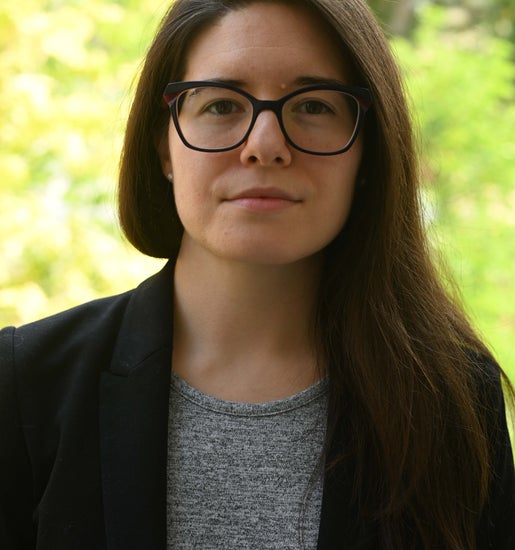
Sebastian Diaz Angel, a PhD student in history at Cornell University. His dissertation traces intersecting histories of environment, technology, and politics in the Cold War. It explains how and why, during the 1950s and 1960s, and early 1970s, technocratic elites, liberal modernizers, progressive reformers, and cold warriors —both in North and South America— envisioned Latin America's tropical rainforests as vast underdeveloped wastelands requiring to be mapped, surveilled, colonized, re-engineered, and cultivated. Under further hyper-modernist visions, the Amazon River and other major "wild" streams of the continent needed to be tamed, dammed, channelized, and regulated. He studies one of the most ambitious, dramatic, and hubristic of these projects: the "South American Great Lakes System" (SAGLS), an unimplemented infrastructural plan to "modernize" the Amazon River basin by creating a series of massive channelized, interlocked, and navigable artificial reservoirs –hence, a South American "Great Lakes System" like that in North America— allegedly providing inexpensive transportation, inexhaustible sources of hydropower, and a new landscape for planned colonization, mechanized agroindustry, large scale mining, and counterinsurgency operations.
The Linda Hall Library virtual fellowship will allow him to examine U.S. government documents promoting U.S. expertise and technologies in dam construction and river management or advocating experimental engineering techniques with nuclear excavation (Project Plowshare). Revising Linda Hall Library collections will help Diaz Angel to enhance his understanding of SAGLS's context, and to revise, refine, and improve many of his dissertation claims and arguments.
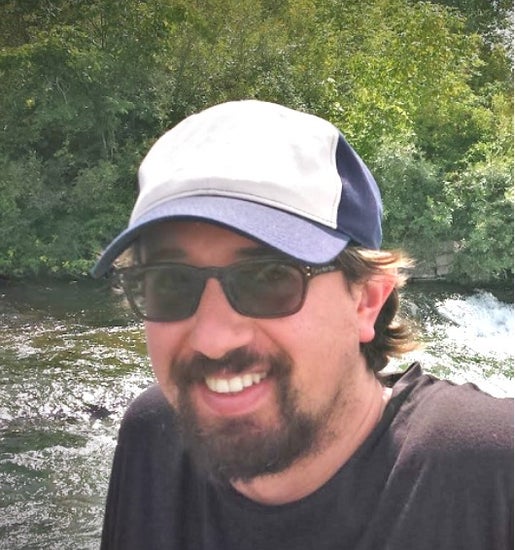
The Link that Divides: The Troubled History of the Nicaragua Canal
Rajeshwari Dutt is an Associate Professor at the Indian Institute of Technology Mandi (India). She obtained her PhD in History from Carnegie Mellon University (2012). Her research interests are in race and imperialism in nineteenth-century Latin America and the Caribbean. She has published journal articles in The Americas, Ethnohistory, Hispanic American Historical Review, and World History Connected. She is the author of two monographs: Maya Caciques in Early National Yucatán (2017) and Empire on Edge: The British Struggle for Order in Belize during Yucatán's Caste War, 1847-1901 (2020).
At Linda Hall Library, Dutt will be working on her current book project that examines the failed quest to build the Nicaragua Canal in the nineteenth century. While the Panama Canal has been the subject of many monographs, there is scant examination of the Nicaragua route which in fact had been, until the late nineteenth century, a serious competitor for a trans-isthmian canal route. Had the Nicaragua Canal been constructed it would have irrevocably altered not just the history of Nicaragua but also the nature of transatlantic relations between Great Britain and the United States and their role in Latin America. Dutt hopes to illuminate how official and imperial egos, racial politics, and local power struggles impacted one of the most important infrastructural projects in Latin American history. In the process, she aims to show how the study of failure can help us understand that technological projects are at their heart, human problems.
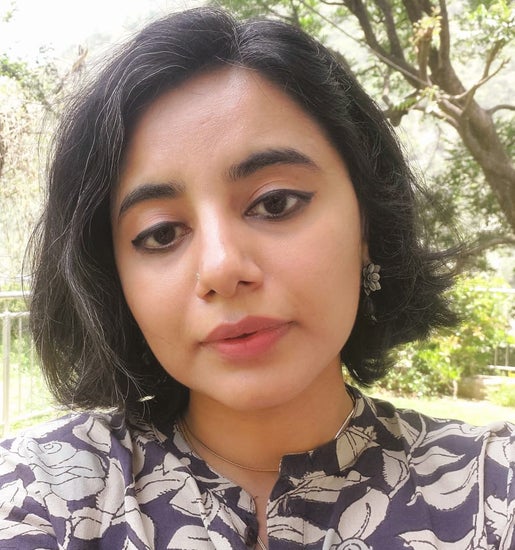
The Land is the Laboratory: Natural Science, Empiricism, and Indigenous Expertise in the Andes
Alfredo Escudero is a doctoral candidate in Latin American history at Florida International University (Miami, FL), with interests in natural science, environment, and indigenous knowledge in the colonial Andes. For his dissertation project, Escudero explores how, during the colonial period, Spanish administrators actively encouraged the exchange of natural knowledge and the rationalization of Andean nature with the ultimate purpose of increasing colonial wealth through indigenous tribute. Imperial tribute schemes, thus, triggered multiple scientific outcomes, including attempts among Spanish settlers, inspectors, and, notably ordinary Andean villagers to investigate and experiment with Andean plants and to observe European plants growing in their climates. The colonial tribute regime also contributed to developing technological and quantitative knowledge in Andean communities. For this project, Escudero turns to sources that have long been central to Andean social history: visitas (land inspections and tributary reports).
As a fellow at the Linda Hall Library, Escudero will research the longer history of indigenous labor, natural knowledge, and scientific descriptions from the Andes, with a focus on agriculture and crop cultivation. He will focus on Linda Hall Library’s holdings that illuminate the ways that Western scientific literature engaged, sometimes discussing, sometimes silencing, local knowledge in the eighteenth and nineteenth centuries. Ultimately, he wants to show that some scientific descriptions responded to long-term empirical procedures undertaken in indigenous communities. This indigenous knowledge and scientific descriptions were instrumental for the conceptualization of the Americas as a paradise of exuberant and wild flora and fauna.

Bricks and Mortar Boards: University-Building in the Settlement Empire, 1840-1920
Caitlin Harvey is a Research Fellow of Fitzwilliam College, University of Cambridge. Prior to her postdoctoral appointment, she completed a PhD in History at Princeton University. Her research examines the history of migration, race, settlement, and education in a British imperial and global context. Her scholarly interests also include Indigenous history and the institutional and political development of settler/Indigenous societies since 1800. Dr. Harvey's research has been published in The Journal of Women's History, the Pacific Northwest Quarterly, and the Native American and Indigenous Studies (NAIS) Journal.
At the Linda Hall Library, Dr. Harvey will consult the library's extensive resources on technical education and the professionalization of engineering as she develops a book manuscript. Her current book project, Bricks and Mortar Boards: University-Building in the Settlement Empire, 1840-1920, examines the rapid expansion of university education across Britain's colonies of settlement and their self-governing successors – Australia, Canada, New Zealand, South Africa, and the United States – from new universities' shaky beginnings at the start of the nineteenth century to their firm foundations and continued growth a century later. In addition, she plans to use the Linda Hall Library's resources to undertake a new, exploratory article on mechanics' institutes.
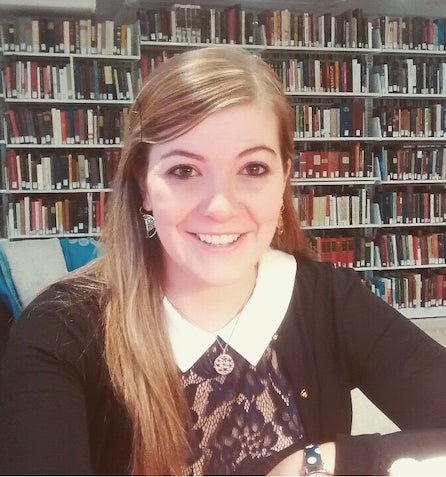
Creating Cookbooks: Networks of Recipe Readers and Writers in England, 1300-1700
Dr. Sarah Peters Kernan is an independent culinary historian and Scholar-in-Residence at the Newberry Library. Her research focuses on the history of medieval and early modern English culinary texts. Dr. Kernan serves as a Corresponding Member of the journal Food and History and is a co-editor of The Recipes Project. She is active as a public historian, teaching a variety of culinary history courses in continuing education and adult learning programs. She collaborates frequently with the Newberry Library, leading historical cooking demonstrations, assembling modules on food history topics for Digital Collections for the Classroom, and teaching programs on culinary history for teachers.
In her current book project, Creating Cookbooks: Networks of Recipe Readers and Writers in England, 1300–1700, Dr. Kernan explores how and why cookbooks were created and used in medieval and early modern England. She offers a framework for understanding how the genre consistently thrived in manuscript and print, offering sustenance, identity, and community to its authors and readers. While on fellowship, Dr. Kernan will draw upon the Linda Hall Library's collection of early modern botanical, agricultural, and husbandry texts to contextualize the use of cookbooks as a vehicle for reinforcing English identity and community in the sixteenth and seventeenth centuries.
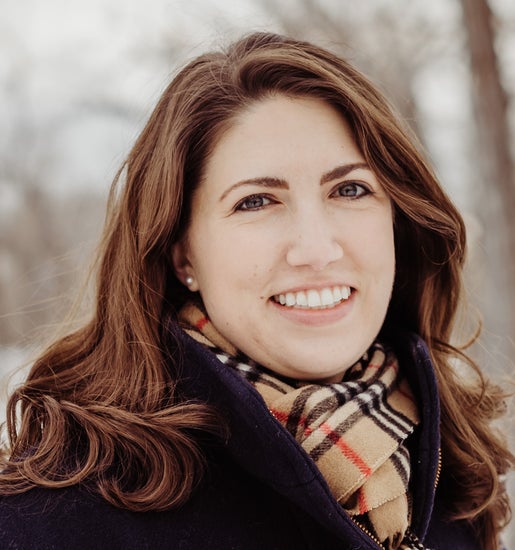
Descent of Man in Transit: A Global Reception
Henry-James Meiring is a doctoral candidate in the Institute for Advanced Studies in the Humanities at the University of Queensland and the co-editor of volume 17 of the John Tyndall Correspondence. His scholarship is situated at the intersection of the history of science, intellectual history, and book history with a particular focus on how the modern disciplines of economy, biology, and psychology came to shape our understanding of what it means to be human.
Meiring's current project at Linda Hall Library aims to examine the global reception of Charles Darwin's Descent of Man (1871) through the lens of print and book culture. He intends to trace Descent of Man through all its various iterations and manifestations as a literary text, cultural transaction, and material object in order to construct the first global account of Darwin's infamous book.
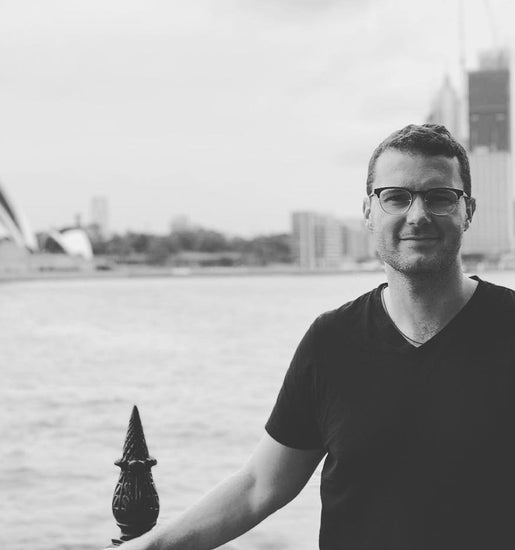
José María Moreno Madrid is a doctoral candidate in History and Philosophy of Science at the University of Lisbon, within the framework of the European Research Council Project “RUTTER: Making the Earth Global” (grant agreement No. 833438). Among his recent publications are: Atravessando a Porta do Pacífico. Roteiros e Relatos da Travessia do Estreito de Magalhães, 1520-1620 (Lisbon: ByTheBook, 2020) and Desenhando a Porta do Pacífico. Mapas, Cartas e Outras Representações Visuais do Estreito de Magalhães/Drawing the Gateway to the Pacific. Maps, Charts and Other Visual Representations, 1520-1671 (Lisbon: ByTheBook, 2021), both written in co-authorship with Henrique Leitão.
Calculating longitude accurately was one of the great scientific problems of the Modern Age. How it was solved, throughout the eighteenth century, has been well-studied and there is a vast literature on it. However, hardly anything has been elucidated about other fundamental questions: Why did longitude become a scientific problem? And how did this problem spread throughout Europe? Moreno Madrid's previous research leads him to argue that the problem arose in the late fifteenth and early sixteenth centuries in Portugal and Spain, motivated not so much by scientific curiosity or nautical reasons, but mainly by diplomatic issues and imperial ambitions. The complexity of the problem sparked a debate that reached particular intensity in Iberia between 1494 and 1524. It is around these dates that texts on longitude and possible methods of calculating it began to appear in other parts of Europe. Therefore, the aim of Moreno Madrid's project is to investigate thoroughly to what extent European astronomers and their activities were influenced by the discussions taking place in Iberia. To this end, Moreno Madrid will carefully analyze the European scientific literature from the sixteenth to the eighteenth centuries, paying special attention to publications on astronomy and nautical science.
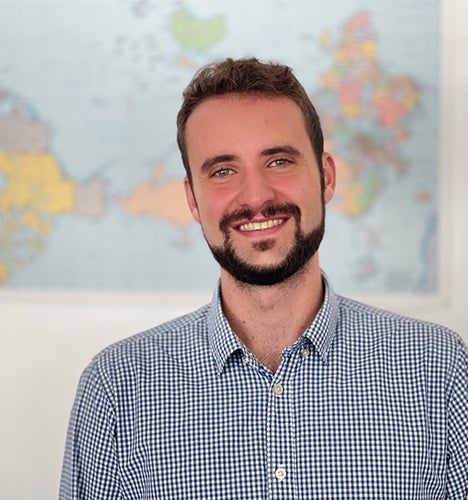
Ingenious Ecologies: Conceits, Nature, and Culture in Early Modern Europe
Javier Patiño Loira is an Assistant Professor in the Department of Spanish and Portuguese at the University of California, Los Angeles. He is currently completing his book project, Ingenious Ecologies: Conceits, Nature, and Culture in Early Modern Europe. At the crossroads of rhetorical theory and the history of science, Ingenious Ecologies casts a new perspective on the seventeenth-century craze of rhetorical conceits. In a poem, a sermon, or casual conversation, conceits were statements that advanced an argument by means of one or more tropes, which rendered them highly apt at striking wonder at the cost of their logical validity. The book studies a series of how-to manuals on the invention of conceits dating from 1619 to 1654 (mostly by Jesuit or formerly Jesuit authors writing in Italy and Spain) in parallel with contemporary natural-philosophical works. It does so by focusing on three seemingly disparate objects—comets, optical devices, and fireflies—that at some point in the story were perceived as counterparts to rhetorical conceits. By adopting a transdisciplinary approach to a phenomenon usually studied within the fields of rhetoric and poetics, the book argues that natural philosophers and theorists of the conceit often approached their respective topics through similar conceptualizations of ingenuity and artifice, a testament to their understanding of a deep and intricate entanglement between natural and human creative forces.
During his stay at the Linda Hall Library, Patiño Loira will explore how the German, Rome-based Jesuit Athanasius Kircher (1602-1680) problematized the distinction between the artificial and the natural, and the role that the notion of a "playful" nature had in the erosion of that divide. This, in turn, will be helpful to understand how seventeenth-century rhetoricians theorized the conceit as a device that transformed an otherwise "natural" language into an artificial form by means of ludic or playful means.
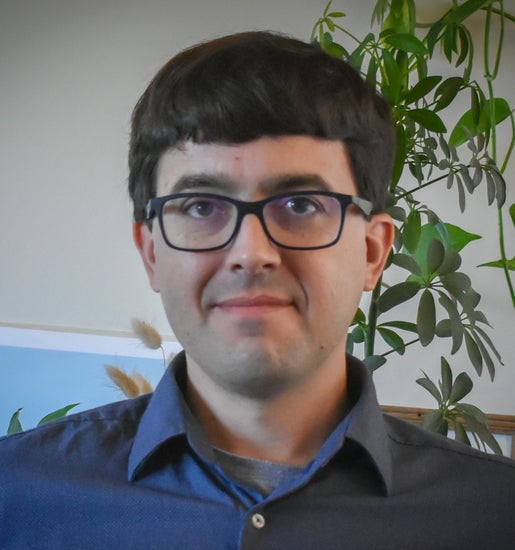
Michele D. Pflug is a PhD student in the Department of History at the University of Oregon, where she studies the history of women naturalists in the early modern British Atlantic World. She holds a BA and MA in history from Binghamton University, State University of New York. Her dissertation retells the life and legacy of the English gentlewoman Eleanor Glanville, an early eighteenth-century entomologist. In reconstructing Glanville's intellectual and personal story, Pflug seeks to shed light on the gendered and familial dynamics of natural history correspondence networks and household economies within an Atlantic context. Pflug is particularly interested in recovering women's roles in the making of the modern biological science.
At the Linda Hall Library, Pflug will be researching entomological reference books printed during the hand-press period. These works complement her study of letters that circulated amongst naturalists, many of whom, including Eleanor Glanville, relied on printed textual and visual descriptions to communicate about specimens. Pflug seeks to understand how these books functioned in the wider, transatlantic network of naturalists.
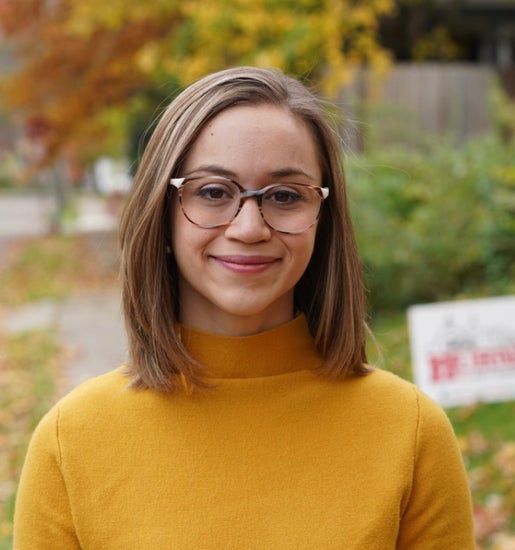
Servants of Science: Making Chimpanzees Lab Animals for Twentieth Century American Psychology
Brigid Prial is a doctoral candidate at the University of Pennsylvania. She studies animal history, history of comparative psychology, and transnational science. Her dissertation project "Servants of Science" examines how chimpanzees became laboratory animals in the twentieth century and the trade of chimps for scientific purposes between West Africa and the United States. American scientists' perceived need for chimpanzee research subjects involved them in networks of West African labor and knowledge that brought chimpanzees from their habitats to U.S. labs. This project focuses on how the challenges of acquiring, maintaining, and managing healthy captive chimps was a form of knowledge production intertwined with the experimental knowledge that chimpanzees also generated. Prial will utilize the extensive mid-century government sources at the Linda Hall Library to develop a comprehensive history of the chimpanzee breeding and research colonies that U.S. scientists established to supply laboratories across the country.
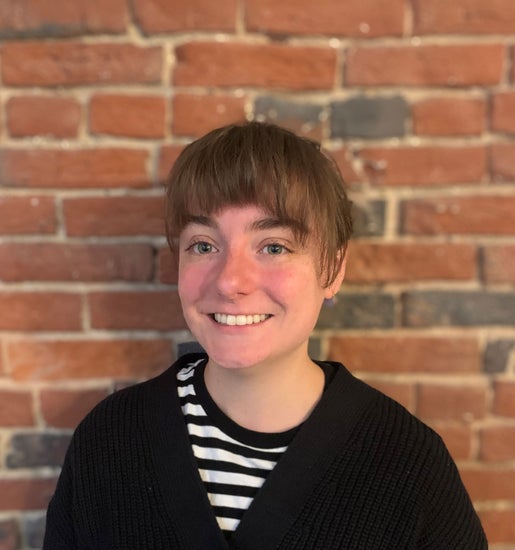
Programming the Revolution: Music, Pedagogy, and Propaganda in Mexican Radio
Sonia Robles (PhD, Latin American History, Michigan State University) studies the history of communications technology in North America. Specifically, she writes about broadcast media in Mexico, the U.S.-Mexico border, and among Spanish-speaking communities in the United States. Her monograph, Mexican Waves: Radio Broadcasting Along Mexico's Northern Border, 1930-1950 was published in 2019 by the University of Arizona Press. Mexican Waves examines Mexican-owned stations along the U.S.-Mexico border and the strategies used by station owners and managers to lure and maintain Spanish-speaking listening audiences during radio's Golden Age.
At the Linda Hall Library, Robles plans to make use of the library's extensive periodical and archival collections and conduct research for her monograph, tentatively titled "Programming the Revolution: Music, Pedagogy, and Propaganda in Mexican Radio." The project, which is a history of state-sponsored radio in Mexico, explores early twentieth-century efforts on behalf of Mexican and Latin American engineers and officials to install an effective state-sponsored wireless broadcasting channel in Mexico.
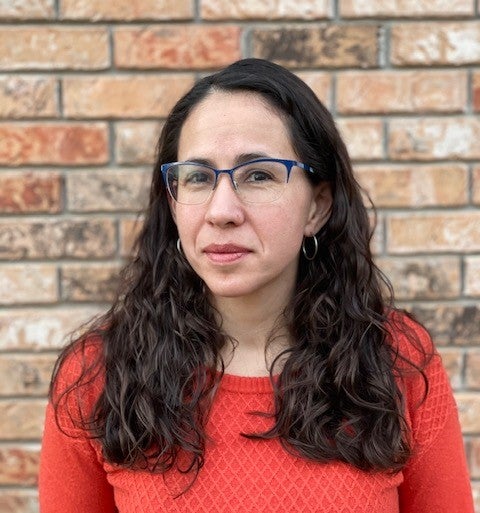
Collecting, Constructing, and Classifying Natural History
Dr Edwin Rose completed a PhD in History and Philosophy of Science at the University of Cambridge in 2020. Since then, he has been a Munby Fellow at Cambridge University Library and a research fellow at Darwin College, Cambridge. His research interests concentrate on the history of the life sciences and material culture while a central theme explores the development, production, and distribution of natural history books, a key element of his book that is forthcoming with the University of Pittsburgh Press. Rose is currently Principal Investigator on the new Arts and Humanities Research Council-funded project, "Natural History in the Age of Revolutions, 1776–1848" based in the Department of History and Philosophy of Science at the University of Cambridge and Advanced Research Fellow at Darwin College, Cambridge.
While at the Linda Hall Library, Rose will undertake a project on three volumes of natural history illustrations commissioned and compiled by the Welsh naturalists Thomas and David Pennant. These provide unique new insights into practices of managing information on natural history during the late eighteenth century and the close relationships between specimen collections, scientific illustrations, and their relationship with printed books.
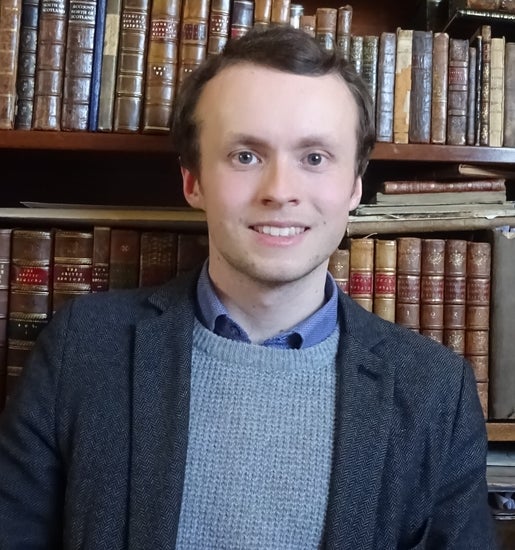
Magnetic Margins: A Database of Reader Annotations in Early Modern Works on Magnetism
Christoph Sander is a postdoctoral researcher at the Bibliotheca Hertziana – Max Planck Institute for Art History in Rome. He received his PhD from the Technical University in Berlin after completing a thesis on early modern conceptions of magnetism. He has also conducted research on early modern astronomy and the relationship between Jesuit theology and scientific thought. His investigations draw heavily on recent advances in digital humanities (DH) scholarship.
As a Linda Hall Library fellow, Sander will be reviewing core publications in the field of "early modern magnetism" through the eyes of their readers, as captured in their handwritten comments. Recording thousands of annotations across many copies of works by William Gilbert, Niccolò Cabeo, or Athanasius Kircher will allow him to statistically determine which concepts in these texts were most important to early modern readers. Following a rigorous DH approach, Sander will also create an online database featuring censuses of all copies of different editions, full digital editions of the printed text and images, and records of the annotations found in each copy. Analyzing these intertwined semantic layers with various computational methods should reveal patterns that will be relevant to intellectual historians and historians of the book.

A Menial Revolution: Data Entry, Labor Identity, and Inequality in Cold War Computer Automation
Corinna Schlombs is Associate Professor of History at Rochester Institute of Technology where she teaches classes in the History of Information and Communication Technologies, Modern German History, and Gender and Sexuality Studies. Her first book, Productivity Machines (MIT Press, 2019) examines the transatlantic history of productivity technology and culture in the two decades before and after World War II. Schlombs has also published articles and book chapters on international computing and computing and gender with funding from the National Science Foundation, the Hagley Museum and Library, and the Charles Babbage Institute.
Her next project is a history of data entry typists—the "really unsung heroines" of computer automation, as computer scientist Carl Hammer called them. When modernizing companies in the United States and East and West Germany introduced computing and automation technologies in the 1950s and 1960s, they soon discovered that data typically occurred in offices on paper, and first needed to be transferred into computer-legible form before it could be processed. Data entry proved costly, requiring time and space, and threatened to introduce mistakes into digital calculations. At the Linda Hall Library, Schlombs intends to investigate the professional literature on punch card operations and data processing by the office managers and computer engineers who organized and managed data entry procedures, setting the working conditions for data entry typists. At a time when artificial intelligence technologies are expected to again change the balance between human and machine labor, the project examines earlier shifts in the domestic digital workforce.
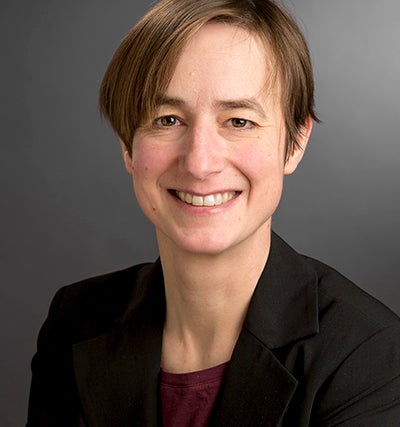
The Inhabited Arctic: Indigenous Built Environments and U.S. Empire in Alaska and the Far North
Phoebe Springstubb is a PhD candidate in the History, Theory, and Criticism of Architecture and Art program at the Massachusetts Institute of Technology. She studies the built environments of the nineteenth and twentieth-century North American Arctic, with a focus on how building knowledge intersected colonial and Indigenous environmental knowledge, from ideas of seasonality and winter to ecologies of snow and permafrost. Before beginning her research at MIT, Springstubb was a curatorial assistant in the Department of Architecture and Design at the Museum of Modern Art in New York. She received an M.Arch and BA from Princeton University.
At Linda Hall Library, Springstubb will consult collection materials on frozen ground and cold regions construction and engineering. These include transcripts of permafrost conferences, geology journals, and Russian and Soviet technical publications that record exchanges of cold-weather building techniques and ideologies between diverse figures, from whalers to engineers, across arctic and subarctic Siberia and North America.
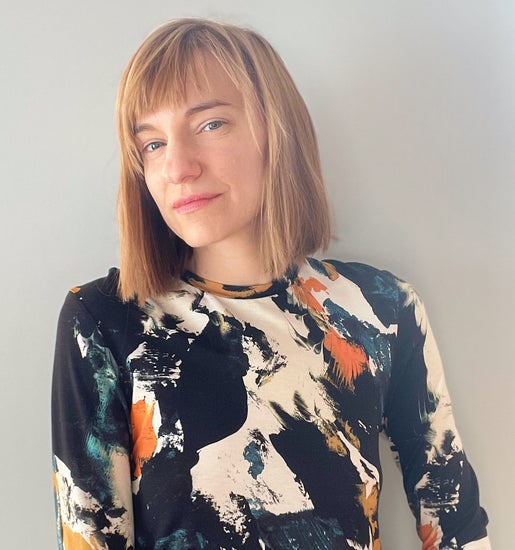
Peter Vale is a PhD Candidate in the History Department at the University of California, Berkeley. His research interests include mining economies, ideas of development, and the nation-state in colonial and post-colonial Africa. His dissertation begins with the question: how does copper—this material found in concentrated pockets throughout the earth's crust—inflect notions of work, expertise, space, and sovereignty with new meanings? In particular, Vale is interested in how the scalability of copper (and later cobalt) production attracted vast amounts of capital that affected an intense expansion of industrial capitalism in Central Africa over the twentieth century.
At the Linda Hall Library, Vale will work with the library's collection of documents on mineralogical research techniques, metallurgy processes, and geology from Belgian Congo to understand the evolution of mining knowledge during the early twentieth century. Using these sources, he will explore the intersection of capitalist expansion, colonial mining techniques, and indigenous mineral mapping.
